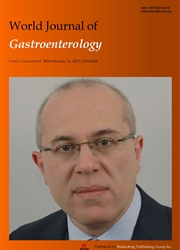

 中文摘要:
中文摘要:
BACKGROUND: Acute cellular rejection(ACR) after liver transplantation(LT) is one of the most common problems faced by transplant recipients in spite of advances in immunosuppressive therapy. Recently, clinical trials reported that ursodeoxycholic acid(UDCA) reduced the incidence of ACR significantly.However, others have shown contradictory conclusion. Therefore,we performed a meta-analysis of rigorous randomized controlled trials(RCTs) to determine the efficacy of UDCA in reducing ACR after LT.DATA SOURCES: All RCTs that evaluated efficacy of UDCA as an adjuvant treatment to prevent ACR after LT were searched from PubMed/MEDLINE, EMBASE, Cochrane Central Register of Controlled Trials, ScienceDirect databases and Web of Science(from January 1981 to March 2012). There was no language limitation in these searches. Relevant abstracts of international meetings were also searched. References of each included study were searched manually.RESULTS: A total of 234 patients from four high-quality RCTs(Jadad score 4 to 5) were included in this meta-analysis.Prophylactic use of UDCA did not decrease the incidence of ACR(RR: 0.94, 95% CI: 0.77-1.16, P0.05), steroid-resistant rejection(RR: 0.77, 95% CI: 0.47-1.27, P0.05) and the number of patients with the multiple episodes of ACR(RR: 0.60, 95% CI:0.28-1.30, P0.05). Different intervention programs(high-dose vs low-dose UDCA; early vs delayed UDCA treatment) also did not alter the outcomes.CONCLUSIONS: UDCA, as an adjuvant treatment, was not ableto prevent ACR and steroid-resistant rejection after LT. Further trials should be done to determine whether higher dose of UDCA will be beneficial.
 英文摘要:
英文摘要:
BACKGROUND: Acute cellular rejection(ACR) after liver transplantation(LT) is one of the most common problems faced by transplant recipients in spite of advances in immunosuppressive therapy. Recently, clinical trials reported that ursodeoxycholic acid(UDCA) reduced the incidence of ACR significantly.However, others have shown contradictory conclusion. Therefore,we performed a meta-analysis of rigorous randomized controlled trials(RCTs) to determine the efficacy of UDCA in reducing ACR after LT.DATA SOURCES: All RCTs that evaluated efficacy of UDCA as an adjuvant treatment to prevent ACR after LT were searched from PubMed/MEDLINE, EMBASE, Cochrane Central Register of Controlled Trials, ScienceDirect databases and Web of Science(from January 1981 to March 2012). There was no language limitation in these searches. Relevant abstracts of international meetings were also searched. References of each included study were searched manually.RESULTS: A total of 234 patients from four high-quality RCTs(Jadad score 4 to 5) were included in this meta-analysis.Prophylactic use of UDCA did not decrease the incidence of ACR(RR: 0.94, 95% CI: 0.77-1.16, P0.05), steroid-resistant rejection(RR: 0.77, 95% CI: 0.47-1.27, P0.05) and the number of patients with the multiple episodes of ACR(RR: 0.60, 95% CI:0.28-1.30, P0.05). Different intervention programs(high-dose vs low-dose UDCA; early vs delayed UDCA treatment) also did not alter the outcomes.CONCLUSIONS: UDCA, as an adjuvant treatment, was not ableto prevent ACR and steroid-resistant rejection after LT. Further trials should be done to determine whether higher dose of UDCA will be beneficial.
 同期刊论文项目
同期刊论文项目
 同项目期刊论文
同项目期刊论文
 期刊信息
期刊信息
